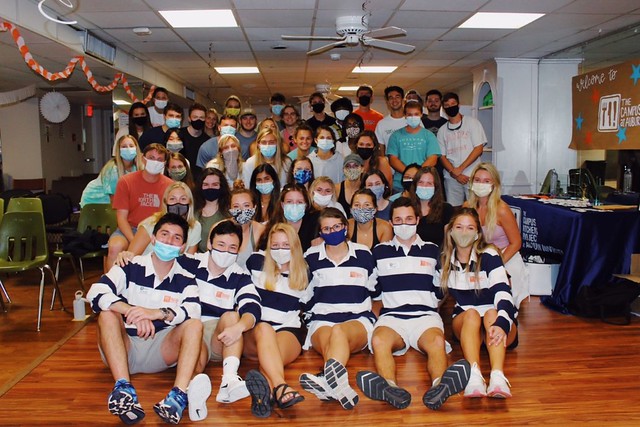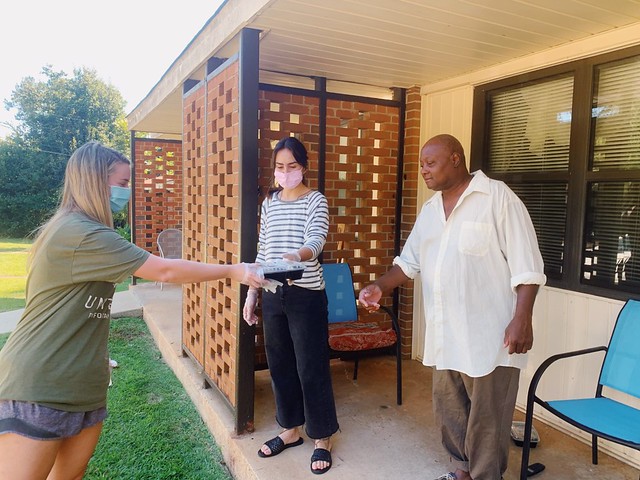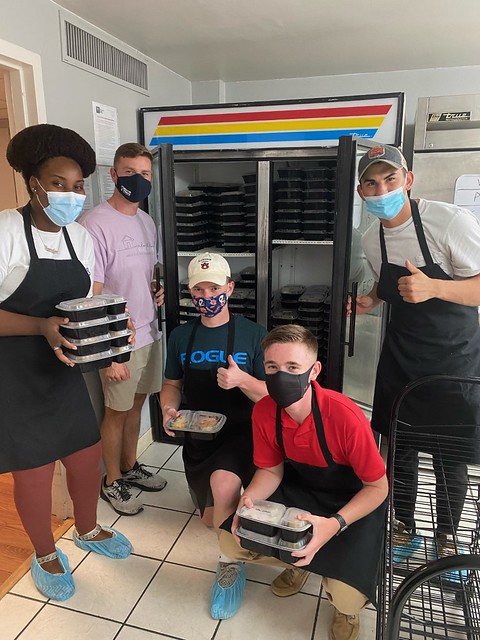Auburn University Campus Kitchen continues mission, aims to fight hunger during Thanksgiving season
Article body
The Campus Kitchen at Auburn University is focused year-round on fighting hunger, but that mission is perhaps no more important than during the leadup to the Thanksgiving holiday.
“While for many the Thanksgiving season symbolizes a time to count blessings and be surrounded by loved ones, not everyone gets to celebrate these sentiments,” said Marie Harris, president of Auburn’s Campus Kitchen. “Organizations like Campus Kitchen are especially important in the Thanksgiving season because we are able to offer community and more personally share our love with the people we serve on a daily basis, and you never know how badly someone there may be needing that feeling of care.”
Campus Kitchen is a volunteer organization devoted to fighting hunger and food waste in the East Alabama area. By recovering excess food from campus dining locations, Campus Kitchen is able to make nutritionally balanced meals for food insecure individuals throughout the community.
“According to Feeding America, 15 percent of the population in Lee County is food insecure,” said Brandon Thomas, a student-volunteer of Campus Kitchen. “That is nearly one in six people that we walk past every single day that cannot consistently get their nutritional needs met. To me, that is a devastating and serious issue.
“I volunteer with Campus Kitchen because I want to do my part in my community and fight this problem.”
Campus Kitchen generally delivers between 20,000 and 22,000 meals per academic year. Students work in shifts to collect unused food around campus, package it into nutritionally balance meals and then distribute the meals through the community.
Campus Kitchen plans to spend the last month of operations in their current headquarters packing special Thanksgiving bags to give to those on their “Meals on Wheels” routes, which mostly consist of community members who are elderly or shut-in individuals. After a decade of operating out of Toomer Hall in the Hill housing community, the Campus Kitchen will move to Lupton Hall in the Quad housing community. The new headquarters will be adjacent to the Campus Food Pantry, and together they will constitute the Nutrition Resource Center.
With the nation recovering from the COVID-19 pandemic, Campus Kitchen “hunger fighters” are looking to make sure those in the community who face food insecurity get the Thanksgiving meals they need.
“As the pandemic has left so many families in financial binds and with the lives of loved ones lost, this Thanksgiving season in particular is poised to be a hard time for many,” Harris said.
Through support from Auburn’s Office of Public Service and meaningful partnerships with Universities Fighting World Hunger, the Auburn Student Government Association’s Hunger Awareness Week, the Community Garden and many more organizations, Campus Kitchen has been able to help fight hunger in the community and decrease environmental harm caused by food waste. Campus Kitchen also works closely with the Hunger Solutions Institute in the College of Human Sciences and the Auburn Cares office.
Through volunteering, students are able to make an impact on the Lee County area by helping move closer to eradicating hunger. Students looking to get involved with Campus Kitchen may learn about or sign up for the organization through its AUInvolve page.
Related Media
Media interested in this story can contact Communications Director Preston Sparks at (334) 844-9999 or preston.sparks@auburn.edu.
Auburn University is a nationally ranked land grant institution recognized for its commitment to world-class scholarship, interdisciplinary research with an elite, top-tier Carnegie R1 classification, life-changing outreach with Carnegie’s Community Engagement designation and an undergraduate education experience second to none. Auburn is home to more than 30,000 students, and its faculty and research partners collaborate to develop and deliver meaningful scholarship, science and technology-based advancements that meet pressing regional, national and global needs. Auburn’s commitment to active student engagement, professional success and public/private partnership drives a growing reputation for outreach and extension that delivers broad economic, health and societal impact.







